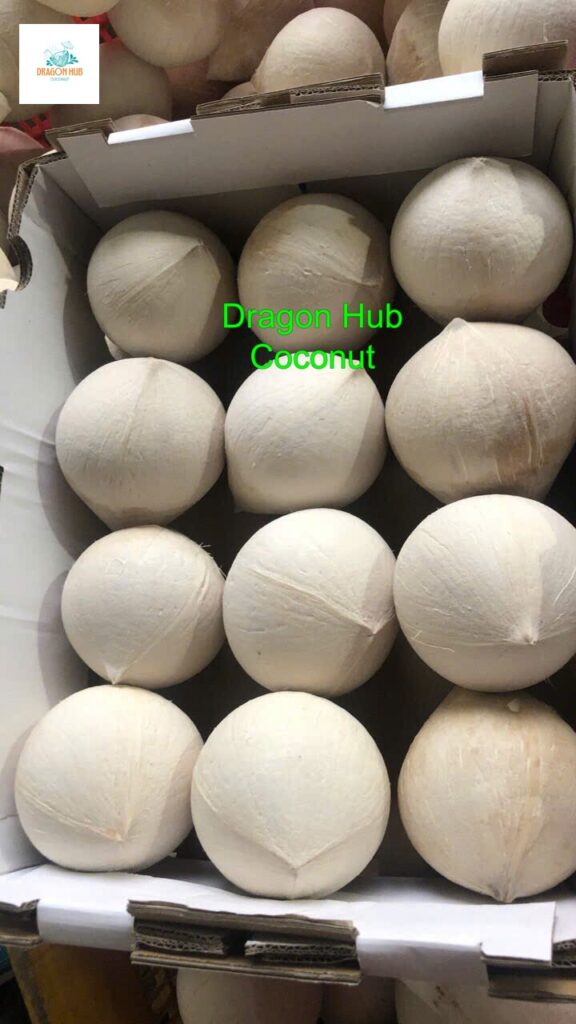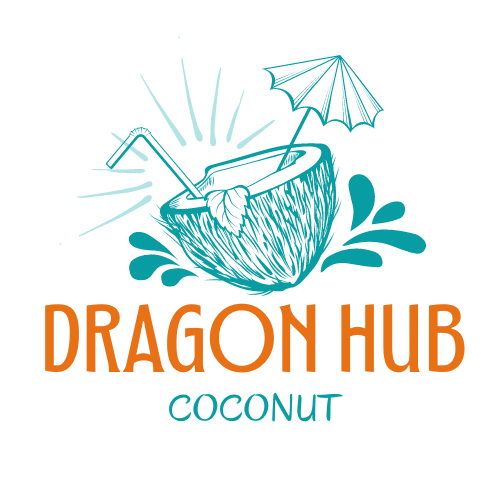Introduction
Vietnam is rapidly emerging as one of the leading players in the global coconut market. Known for its high-quality coconut products and an efficient export infrastructure, Vietnam is making significant contributions to the world market by providing a diverse range of coconut-based products. From fresh coconuts to coconut water, oil, and other byproducts, Vietnamese coconuts are enhancing international trade, meeting the rising demand for healthy and sustainable products worldwide. This article explores how coconuts from Vietnam are making an impact on the global market and the factors that contribute to their success.

1. Vietnam’s Coconut Production: A Key Source of Supply
Vietnam’s coconut production is centered primarily in the Mekong Delta, where the tropical climate and fertile soil provide the ideal conditions for growing coconuts. The country’s production of coconuts has been growing steadily, making it one of the top producers globally. Vietnamese coconut farms operate year-round, ensuring a consistent supply of fresh coconuts and various coconut products for export.
Vietnam’s production capacity allows it to meet the increasing global demand for coconuts and coconut-based products, ensuring that international buyers can rely on the country for high-quality and affordable products. In 2020, Vietnam’s coconut production reached millions of coconuts annually, with exports reaching multiple countries around the world.
2. Diversification of Coconut Products for Global Consumption
One of the key factors that set Vietnamese coconuts apart is the country’s ability to produce a wide range of coconut products that meet the diverse needs of the global market. Vietnam’s coconut industry doesn’t just stop at fresh coconuts; it also produces various products that cater to both food and non-food industries. These products include:
- Coconut Water: This refreshing, healthy beverage is gaining popularity globally due to its natural hydrating properties. Vietnamese coconut water, known for its sweet taste and rich electrolytes, is a preferred choice for health-conscious consumers worldwide.
- Coconut Oil: Vietnamese coconut oil is highly sought after for its purity and versatile applications. It is used in cooking, personal care, and even in the pharmaceutical industry due to its reputed health benefits.
- Desiccated Coconut: Shredded and dried coconut meat, used in baking, confectionery, and snack food production, is another major export product. The quality of Vietnamese desiccated coconut, which is finely shredded and uniformly dried, makes it highly desirable in international markets.
- Coconut Milk and Cream: With the rise in plant-based diets, coconut milk and cream have become essential ingredients in vegan cooking. Vietnam’s coconut milk and cream are prized for their rich flavor and smooth texture.
- Coconut Shell Products: Vietnam also produces eco-friendly products from coconut shells, such as handicrafts, furniture, and activated carbon. These products cater to the global demand for sustainable alternatives to plastic.
3. Meeting the Health and Wellness Demand
As health and wellness trends continue to grow worldwide, coconuts have become a symbol of natural, nutritious, and sustainable products. Vietnamese coconuts, in particular, are gaining traction for their health benefits. Coconut water, a natural drink rich in electrolytes and low in calories, is increasingly popular as a sports drink and a healthier alternative to sugary beverages.
Coconut oil from Vietnam is also becoming a staple in many households, particularly in the beauty and skincare sectors. Its moisturizing properties make it a sought-after ingredient in cosmetics and hair care products. Additionally, coconut oil is recognized for its potential health benefits, such as aiding digestion, boosting immunity, and promoting healthy skin.
The growing awareness of the benefits of plant-based products has further fueled the demand for Vietnamese coconut products, as consumers seek healthier and more natural alternatives.

4. Contributing to Sustainable and Eco-Friendly Practices
In today’s environmentally-conscious world, sustainability is a significant concern for both consumers and businesses. Vietnamese coconut producers are responding by adopting sustainable farming practices. Many farms are transitioning to organic cultivation methods, which reduce the use of harmful pesticides and fertilizers, ensuring that the coconuts are not only healthy but also grown in an environmentally friendly way.
Additionally, the byproducts of coconut farming, such as coconut husks and shells, are being used for various eco-friendly products. These include biodegradable packaging materials, eco-conscious handicrafts, and renewable energy sources like activated carbon, which are gaining international recognition as alternatives to plastic.
Vietnam’s commitment to sustainable practices is contributing to the global movement toward more environmentally responsible and ethical sourcing of agricultural products.
5. Competitive Pricing and Export Efficiency
Vietnam’s competitive pricing is one of the reasons it plays a significant role in the global coconut market. Due to relatively low production costs and an efficient supply chain, Vietnamese coconut products are often priced more competitively compared to those from other coconut-producing countries. This price advantage allows Vietnam to offer high-quality products at affordable rates, making them accessible to a wide range of international buyers.
Vietnam has also invested heavily in improving its export infrastructure, including transportation, logistics, and trade regulations, ensuring that coconut products reach global markets in a timely and efficient manner. This infrastructure is crucial for maintaining the freshness of products such as coconut water and for expanding Vietnam’s presence in new markets worldwide.
6. Expanding Reach in Emerging Markets
While Vietnam has long been an exporter to Western markets such as North America and Europe, it is now seeing growing demand in emerging economies. Countries in Asia, the Middle East, and Africa are increasingly turning to Vietnamese coconuts to meet the demand for health-conscious and sustainable products.
The rising middle class and increasing disposable incomes in these regions have created new opportunities for Vietnamese coconut exports. With a growing demand for natural, healthy alternatives, Vietnamese coconuts are poised to capture an even larger share of the global market in the coming years.

7. The Future of Vietnamese Coconuts in the Global Market
The future of Vietnamese coconuts in the global market looks promising. As the world continues to seek healthier, more sustainable products, Vietnam is well-positioned to meet these demands. The country’s ability to produce a wide range of high-quality coconut products, its competitive pricing, and its commitment to sustainable practices make it a top choice for international buyers.
Vietnam’s coconut industry is set to grow even further, with new markets emerging and new products being developed to cater to changing consumer preferences. As more consumers around the world turn to coconut products for their health benefits, Vietnam’s contribution to the global coconut market will continue to be an important and growing force.
Conclusion
Coconuts from Vietnam are making significant contributions to the world market by offering a wide range of high-quality, sustainable products that cater to the growing global demand for healthy and eco-friendly options. With ideal growing conditions, a strong export infrastructure, and a commitment to sustainability, Vietnamese coconuts are becoming a leading source for the world’s coconut needs. As the coconut industry continues to evolve, Vietnam’s role in the global market will only become more prominent, benefiting consumers, businesses, and the environment alike.

